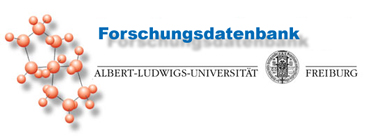| [Zurück zum Forschungsbericht] |
 |

DFG BA877/19-1 Intrinsische Bildgebung der okulären neurovaskulären Kopplung bei Normalpersonen und Glaukompatienten
Projektbeschreibung:When neural tissue is stimulated, it responds by changes in membrane potentials and with action potentials. Both can be measured electrically. Neural activity induces changes in local blood flow referred to as neurovascular coupling. The eye is a unique organ which simultaneously allows selective and specific stimulation, recording of electrical responses by electroretinography, and vascular imaging, all in a non-invasive way, thus applicable in humans. We have attracted a young researcher who developed a novel system which allows stimulation and assessing the neurovascular coupling chain. Pilot studies have established its validity in non-human primates. We here request support for a three-step project, using this instrument to shed light on the pathogenesis of glaucoma and to aid early diagnosis of this challenging disease, which is the second-most cause of blindness in this country. In the first phase the instrument is to be optimized for recordings in humans. In the second phase two specific hypotheses on ocular neurovascular coupling are to be tested. In the third phase these efforts will help to assess the weight of vascular dysfunction as opposed to neurotrophic deprivation in glaucoma.Projektlaufzeit:
Ansprechpartner: Prof. Dr. Michael Bach
Tel: 270-4060
Email: michael.bach@uni-freiburg.de
Projektbeginn: 01.06.2007Projektleitung:
Projektende: 31.05.2009
Bach MKooperationspartner
Stellvertretung: Dipl.-Ing. (FH) Fabrice Moret
Albert-Ludwigs-Universität Freiburg
Augenklinik
Abteilung Allgemeine Augenheilkunde mit Poliklinik
Killianstrasse 5
79106 Freiburg
Telefon: +49 (761) 270-40060
Fax: +49 (761) 270-40630
Email: augenklinik.direktion@uniklinik-freiburg.de
http://www.uniklinik-freiburg.de/augenklinik.html
PD Dr. Luc Pellerin, Lausanne (CH)Finanzierung:
- Einzelförderung, DFG
Schlagworte:
- Augenheilkunde, Glaukom, Bildgebung, neurovaskuläre Kopplung
Aktueller Forschungsbericht